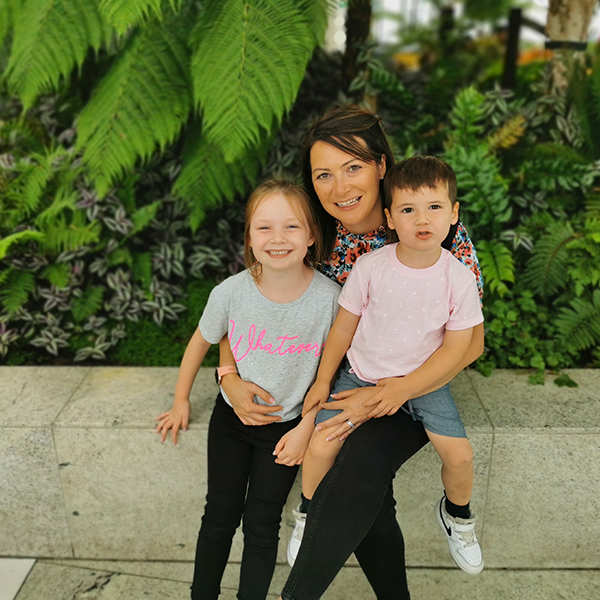
Why Parental Self-Care is the Best Way to Ensure Children’s Health and Wellness Mid-pandemic
Parental self care – what’s that?! I don’t know about you, but during this (ongoing) pandemic, us parents are tired, depressed and stressed out. But there’s not much we can do about it!
I’m working as normal (albeit now from home), taking care of the house, and handling the schooling. I’m definitely taking self-care for granted just to cover my daily tasks.
Parents are worried about their family’s health and how to keep up with deadlines at work but most importantly, the mental health of our kids.
How Covid-19 Lockdowns Affect Kid’s Mental Health
They say two out of five adults these days are experienced pandemic-induced mental health issues. But what many fail to realise is that even children are now suffering from anxiety, depression, and sleeping disorders.
Whilst children seem resilient to the lockdown, they are still experiencing mental health disturbance because of the pandemic and the uncertainty surrounding everything.
Before, kids could freely go to school, play with their friends in the playground, tag along when us parents had to run some errands. Now, they spend most of their time indoors, taking online classes, and only socialising through small set bubbles.
Children are meant to be in a real school setting, interacting with teachers, and learning with their classmates. It’s their right to be able to play outdoors, get dirty doing their favourite sport, and spending quality time with their friends. But because of the medical health crisis, parents had no choice but to disrupt the routine kids have come to love.
Experts say that aside from the fear of contracting the virus and the lack of real social interactions with others, there is one more thing that greatly impacts the mental health of kids. This is their parent’s stress.
Parental Self-Care: Key to Helping Kids Develop Mental Resilience Mid-Pandemic
Kids are also feeling mentally disturbed because they can see and feel that their parents are stressed out. They know their parents are tired, anxious, and depressed. But since they can’t do much about it and some are still not at the age to fully understand why their parents acting and feeling like this, it only adds to their little mind’s stress levels.
Humans, birds, and primates are known to have these so-called mirror neurons. Such neurons allow us to learn from observing other humans. When someone’s mirror neuron fires after observing another person, they learn from the behaviour of their subject and reflect the same behaviour.
Thanks to mirror neurons, kids adopt certain habits of their parents. This explains why kids tend to mimic older adults and unconsciously picks their parents as their main role models.
If you are always stressed out and worried during the pandemic, kids will also feel the same. They absorb the same negativity and struggles you are facing right now. But by practicing self-care, you get to show kids that it is okay to feel worried, scared, and stressed out and that there are better ways to cope other than numbing those feelings.
When parents don’t take self-care for granted, it can be easier to manage stress, deal with daily struggles, and learn to be more resilient to whatever life has to throw in your way. We become a stronger and better role model for the kids. Kids will learn how to manage their own emotions the healthy way and grow to be well-adapted adults.
Different Ways to Practice Parental Self-Care During Covid-19
Us parents should treat our bodies better by preparing and eating healthy foods with the family and getting enough exercise and sleep. It also good that parents, especially tired mums, prioritise skincare routines. Don’t skip your favourite facial wash, whitening skin toner, and sunscreen/moisturiser and you will feel more confident to face the day.
Don’t cut out ties with other people just because of the pandemic. Use technology wisely to catch up with friends, family, neighbours, and colleagues, especially your older loved ones. Show kids that technology should also be used to continue social connections more than plain entertainment.
Take up hobbies you enjoy doing and get the kids to tag along. This can mean baking fresh baked goodies, tending to your vegetable garden, or watching your favourite comedy shows. Show kids that taking a break when you need it is a must, not a luxury.
Parents should also learn to seek help as needed. Asking for help shows kids that you are accepting the fact that sometimes, you can’t do it all on your own and that is totally okay.
Even kids are not immune to the mental stress the Covid-19 lockdowns can cause. But with our help, they can learn how to better adapt to pandemic-related stress, react to situations in a healthy way, and learn how to prioritise self-care in our crazy schedules!
The better the parental self care, the better the lesson they teach their children, and the more they can give in return.
* this is a collaborative post.



